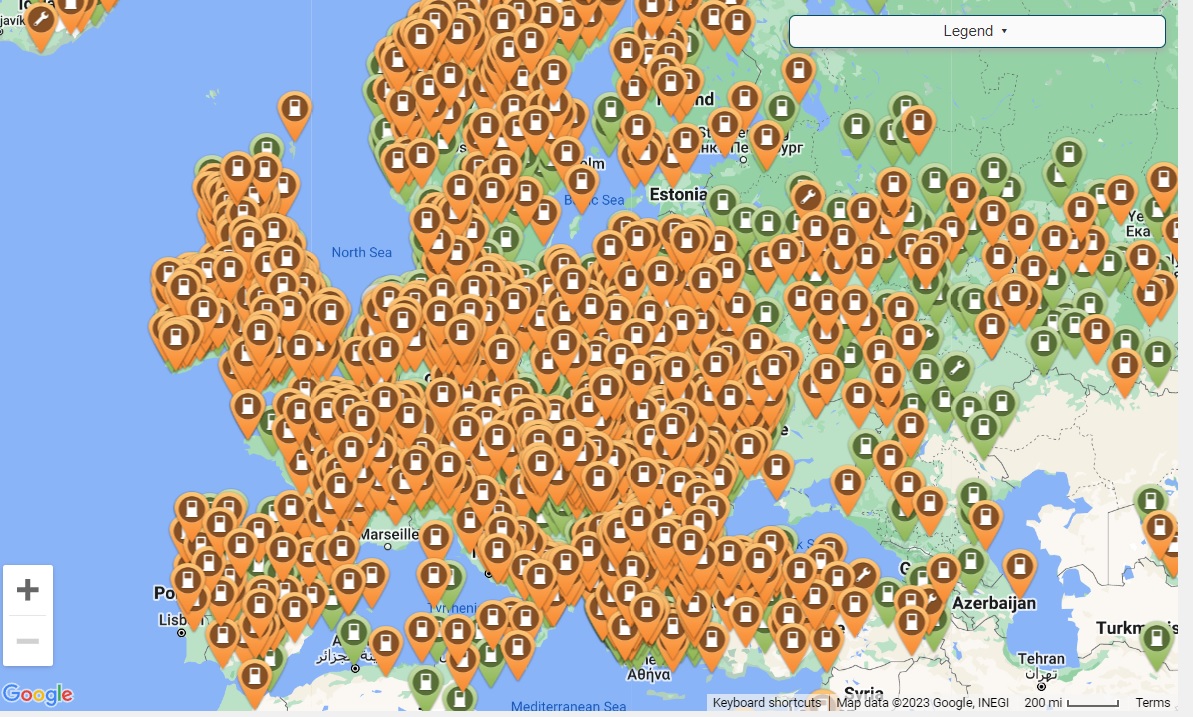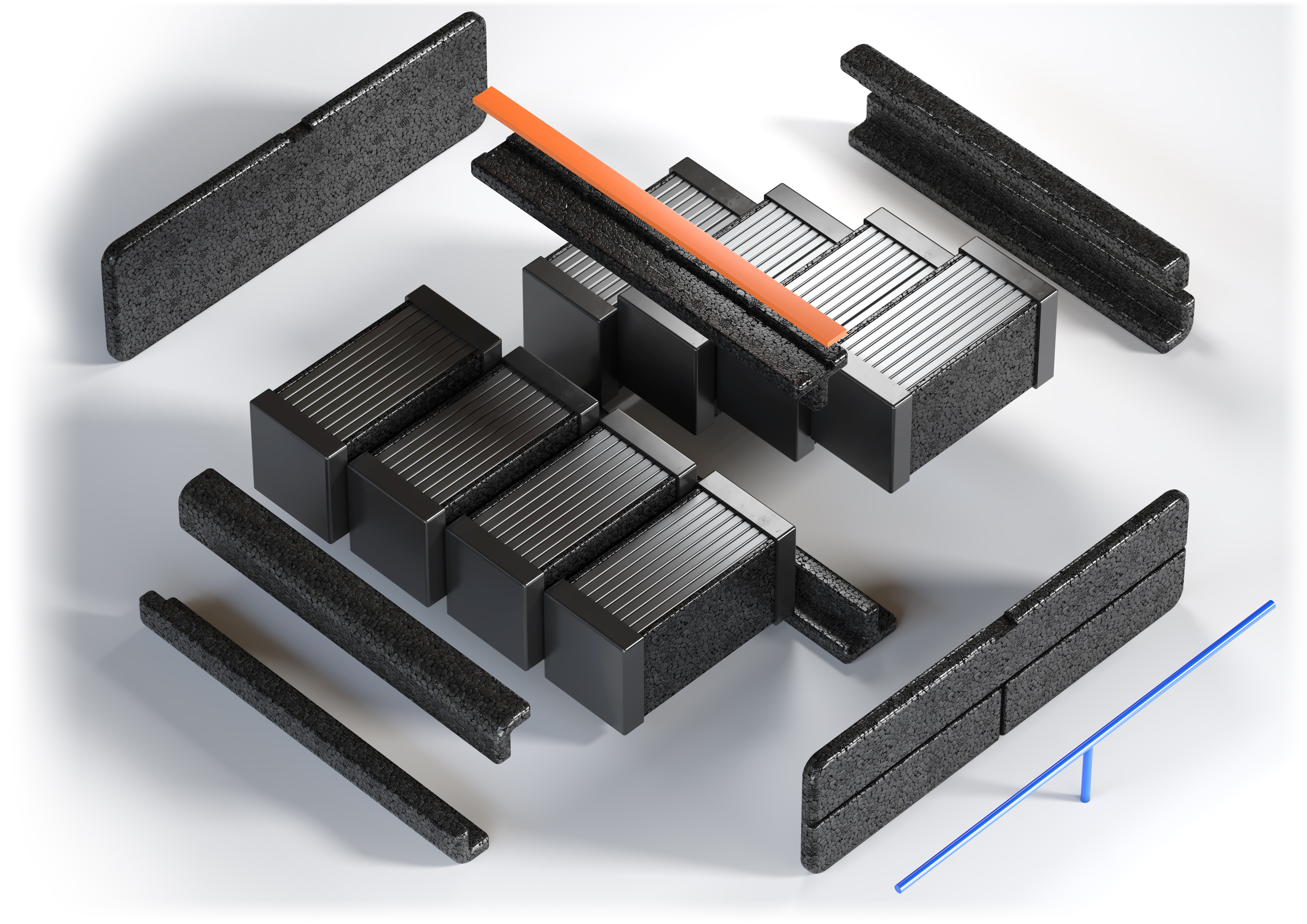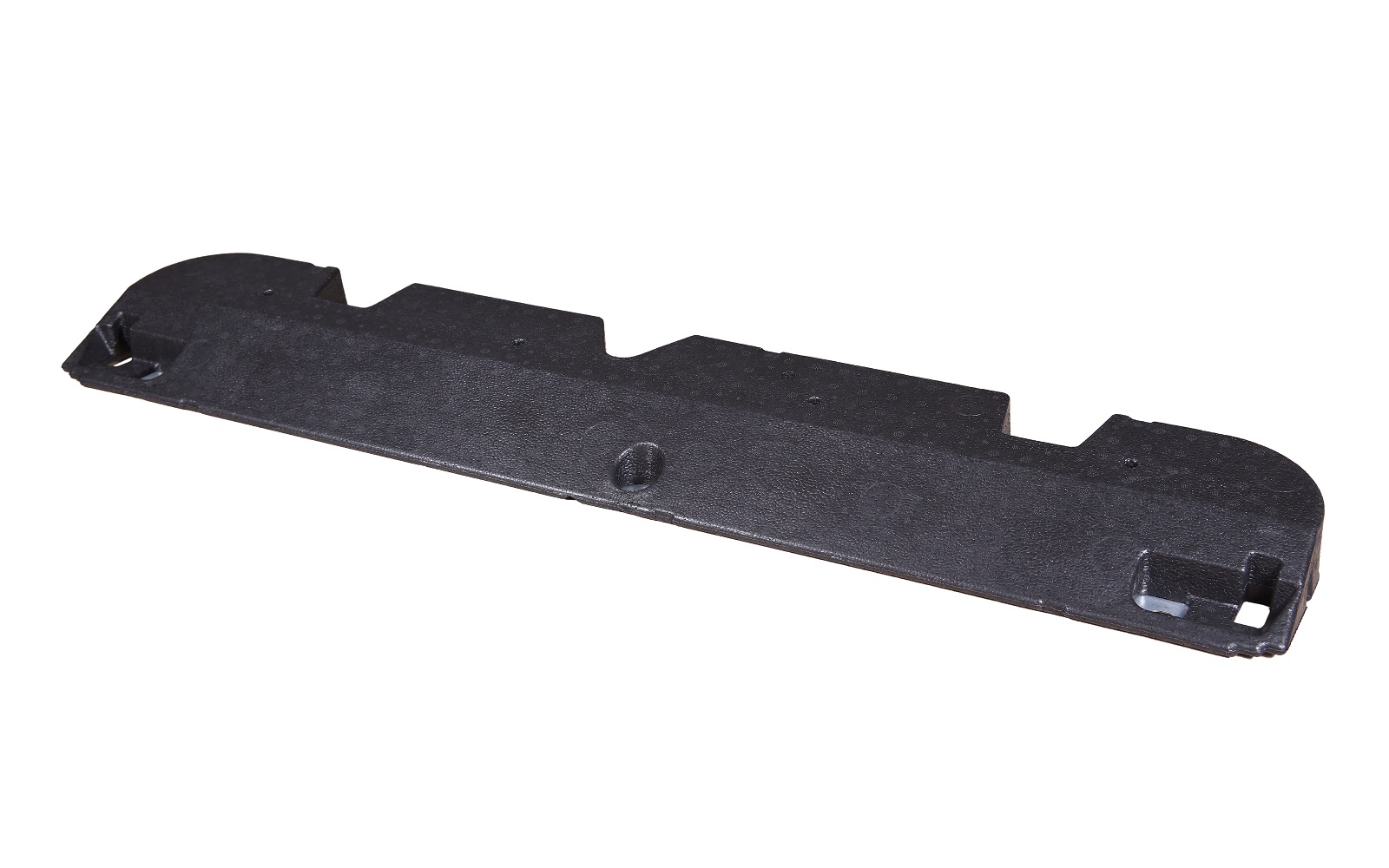Electromobility is a growing trend in the automotive industry. Despite the undeniable benefits of using electric cars, however, some doubts remain among drivers about charging. The use of such cars on longer routes often requires advance planning of the trip. Where to find electric car charging stations and how much does it cost to use them?
Battery performance and electric car charging
Electric cars are increasingly popular today. What is more, the emergence of new models and the presence of second-hand cars on the used-car market is gradually lowering the entry threshold for drivers who want to take advantage of such a solution. It is worth noting that almost all major automotive companies already have e-cars in their offer and many manufacturers have already announced their plans to completely abandon combustion engines.
Increased demand for electromobility, however, means that car and auto parts manufacturers face a number of challenges. Among the biggest of these is increasing battery efficiency. This will reduce the frequency with which electric cars are recharged, which in turn also has an impact on the battery's faster loss of capacity.
Many people also wonder whether an electric car should be charged to full. Counterintuitively, the battery should not be charged to 100%, as this shortens its life. The optimal level is 80%, so it is advisable to re-charge more often if possible, but to a lower extent. Meanwhile, the low density of the charger network causes drivers to try to ensure that their car lasts longer. Frequent use of fast chargers or charging the battery to a maximum can significantly reduce battery life and make it necessary to replace the battery in an electric car much sooner.
In terms of driving economy, component weight is of particular importance. The use of lightweight, flexible plastics, such as foamed polypropylene, can significantly reduce the weight of the entire car, resulting in a longer range per charge. This is because a lighter car requires less energy to move.
Where can electric cars be charged?
You can check the locations of electric car charging stations on dedicated websites or through apps. Among the most popular solutions of this type are PlugShare and Chargemap. Some degree of support for this functionality is also offered by major online map providers such as Google Maps and Apple Maps. In addition, you can use these sources to find out which electric car charging stations will be compatible with your model.
See also: Production of EPP car parts at the Wroclaw factory has been launched
Electric car charging stations in Europe – latest data
The charging infrastructure across the European continent is also highly differentiated. There are currently 550,000 such points in the 28 countries of the European Union (data for Q3 2023). According to the latest ACEA report for 2022, almost 42% of all charging points can be found in two countries: The Netherlands (111,821 chargers) and Germany (87,674), while covering only 10% of Europe. The smallest number of charging points is in Latvia (660), Lithuania (477), Estonia (300), Cyprus (69) and Malta (13). However, since the countries listed differ in terms of area, the number of chargers per 100,000 inhabitants also matters. In this regard, Norway (538), Luxembourg (310) and Sweden (265) are the best. The lowest density of chargers (less than 59 per 100,000 inhabitants) is found in 12 countries located in Eastern Europe and Southern Europe. The worst performers in this regard are Romania, Poland, Bulgaria, Greece and Croatia.
Inequalities in infrastructure density also exist within individual European countries. In Austria, for example, the charging network is far better developed in the west, while in Switzerland it is more developed in the south. Interestingly, often the capital regions of individual European countries provide worse charging conditions for electrics than their other parts. This is the case, for example, in France, Belgium, the UK or Germany.
Where do electric car owners most often charge their cars?
In 70% of cases, electric car charging is done at home or at work. The voltage is lower in this case, so charging takes longer, but it is also cheaper. Given that 46% of Europeans live in multi-family buildings, in fact relatively few people have access to electric car chargers in their own homes. The situation depends on the specific conditions of the country or the immediate availability of infrastructure in the immediate vicinity of drivers.
In the Nordic countries and France, for example, the percentage of people saying they charge their cars at work was 60%. They are followed closely by the Benelux countries, Germany, Austria and Switzerland. Cars are charged between 8:00 a.m. and 4:00 p.m. in 75% of cases, and between 4:00 p.m. and midnight in 25%. It is worth mentioning that the number of charging points at work overlaps with those at home in less than 50% of cases.
The third place of charging is public electric car chargers, among which one can distinguish between public and "semi-public" points. The former include devices found, for example, at gas stations or highways, which are available 24 hours and 7 days a week. The second category includes points located, for example, on private property and with limited accessibility, such as hotel parking lots or shopping malls.
Electric car charging stations in Europe – map

Going on a longer trip around Europe in a zero-emission vehicle is still unimaginable for many drivers, due to the limited range of electric cars. Currently, it is possible to drive about 500 kilometers without recharging, but this value is sufficient only for traveling on local routes. However, it is enough just to take a look at the map of electric car charging stations in Europe and plot your route according to the course of the "line" of charging points. However, you need to remember to plan for the longer stops needed to recharge the battery.
Charging electric cars at home
Charging a car at home is not only the cheapest, but also the most convenient. It can be carried out when you do not need the car, so, for example, at night. Such a solution is advantageous especially if you use a night tariff, which provides for lower costs of using electricity after a certain hour.
In addition, charging electric cars from a socket does not require any special preparation of the network at all – you can use an "ordinary" socket for this purpose and charge the battery with alternating current (AC) of 230 V. Under such conditions, the charge level rises very slowly, but this is beneficial for the battery. An alternative is to mount a home charger on the wall, a so-called wallbox with a power output of 11 kW, which speeds up charging and allows you to reach 80% level in 7 hours.
How long does it take to charge an electric car?

How long it takes to charge an electric car depends on many factors. The most important of these are the capacity of the battery, the parameters of the charging current, and the technical capabilities of the particular model and station. What kind of current is needed to charge an electric car? It can be alternating current (AC) directly from a household outlet or direct current (DC), available from so-called fast chargers. Many stations offer a fast-charging option, using DC current with power from 25 to 150 kW. Under such conditions, it takes up to 20-30 minutes to completely fill the battery. However, such a solution, unfortunately, also has some disadvantages – one of them is the increased cost. Alternatives are charging stations where alternating current is available. Their power is slightly lower, which increases the charging time of the vehicle. Charging, depending on the model or the state of the battery, can then take all night or even the whole day and night. In this context, many people wonder whether it is possible to interrupt the charging of an electric car. It is entirely possible – you can pause the process, for example, using an app on your smartphone and then at any time later reconnect the car to charge. Many of the problems that affect the use of lithium-ion batteries in electric cars are to be solved by solid-state batteries with fast charging, which are still under development. The technology would make it possible in the future to charge a car in just a few minutes.
Electric car charging price – how much does it cost to charge an electric car?
The costs of charging an electric car vary – the type and speed of the charger also determine the fees. It can be from 0,22 to 0,67 EUR per 1 kWh. In the case of direct current, the prices are slightly higher, but in return you can count on a much shorter charging time. However, a certain limitation with many fast charging stations may be the limit on how long you can stay at the charger.
Exceeding it involves an increased fee. In view of the relatively high cost of using fast chargers, a better solution seems to be a home charger – in this case, the price of charging an electric car is about 0,21 EUR per 1 kWh, but only owners of single-family houses can afford such comfort. The alternative is a much slower charging of the car from a 230-volt outlet at the station. The price per 1 kWh will then be between 0,29 and 0,44 EUR.
See also: When will electric cars be cheaper than combustion cars
Proven solutions for electromobility by Knauf Industries Automotive – increasing the range of electric cars

Knauf Automotive is a Knauf Group-owned manufacturer of components for the automotive industry. We use innovative materials in our projects, among which EPP, or foamed polypropylene, is particularly noteworthy. The cellular material is characterized by high impact resistance, while being extremely lightweight and having excellent thermal insulation. Due to its rich properties and easy formability, it often replaces hard plastic or sheet metal components in vehicle construction today. Thanks to the fact that its structure consists of 95% air, it allows us to produce components with the same properties, but with 50% less weight compared to those made of hard plastic. We manufacture high-performance solutions in the form of trunk fillings, door panels or car seats made of EPP, which not only do not increase the vehicle's own weight, but also guarantee maximum safety. This is because the foamed polypropylene does not disintegrate into pieces and returns to its original shape when the pressure stops. In addition to internal EPP car parts, we also offer lightweight and flexible foams for battery packs, which are excellent at cushioning cells from shocks and extreme temperatures. This prevents damage and increases battery life. The assortment of external EPP car parts includes highly durable bumpers or even entire front belt components, which are produced each time according to an individual design. Why should you bet on our products? The properties of the materials we use guarantee the expected performance and long life of vehicles, which is in line with the requirements of ecological design. Do not hesitate to contact us!
See also: Plastics and the future of electric cars
Learn more about Knauf Industries Automotive: